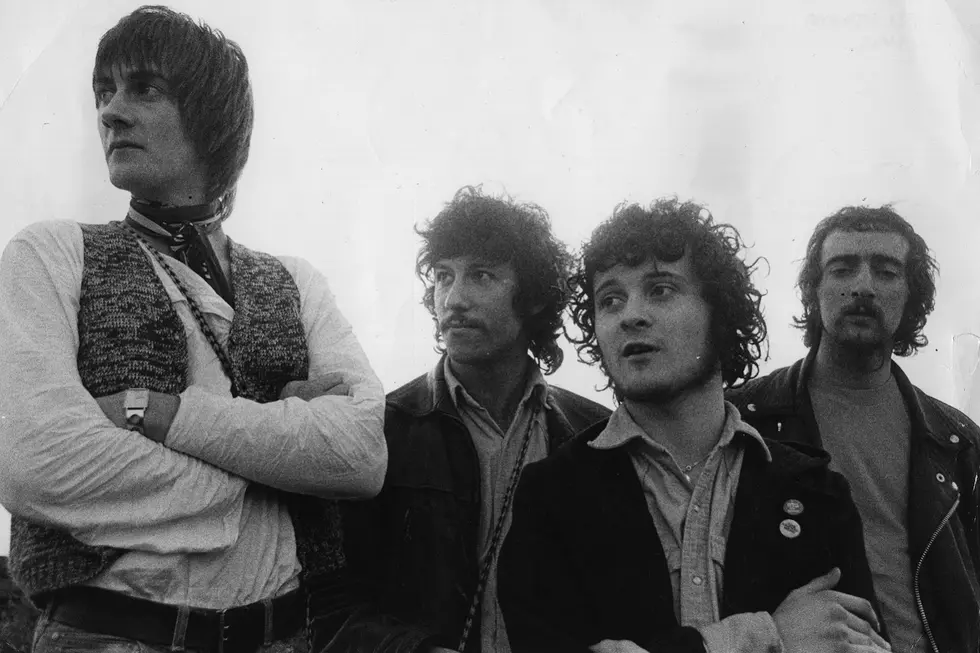
How Fleetwood Mac’s Debut Defined a New Era of British Blues
There have been many versions of Fleetwood Mac over the years: The late '60s blues-rock titans, the transitional folk-rock successors, and the unexpected crossover pop-rock mega-stars of the late '70s. But this complex game of musical chairs began on Feb. 24, 1968, when they released their fascinating debut album and defined a new era of British blues.
The band was formed by guitarist-vocalist Peter Green, who fled John Mayall's hugely influential Bluesbreakers project, and managed to snatch away the sturdy rhythm section of drummer Mick Fleetwood and bassist John McVie from the Bluesbreaker ranks. The line-up was cemented with the addition of Jeremy Spencer, a slide-guitarist known for his quirky stage persona and reverence of blues greats like Elmore James.
Fleetwood Mac is revered for defining a new era of electric blues, and most of that praise is well-deserved. Green, who would remain in the band only for two further albums, does the heavy lifting on this debut, dominating track after track with his dazzling electric guitar work to his soulful vocal stylings. "Merry Go Round" is a groovy showcase for Green's explosive soloing; "Long Grey Mare" rides a busy riff, with added pizzazz from Green's showboating harmonica lines.
But the true highlight is "I Loved Another Woman." A smoky, mystical Latin-blues fusion, it's a musical precursor to Green's "Black Magic Woman," which was released three months later as a single. There's something eerie and magnificent about Green's anguished vocal, moaning over a simmering rhythm section groove, topped off with an atmospheric guitar solo for the ages.
In light of these standouts, it's easy to overlook the album's awkward spots – almost all of which trace back to Jeremy Spencer. The guitarist's tributes to blues greats like Elmore James and Robert Johnson are by far the least interesting tracks here, and his originals don't fare much better: The standard I-IV-V chug of "My Baby's Good to Me" is redeemed only by his white-lightning slide-guitar. Meanwhile, his vocals are often obtrusive and grating (check the chesty bravado of "Cold Black Night"), and his hoarse delivery often sounds like a parody of the legends he honors elsewhere.
To their credit, Fleetwood and McVie anchor every track with rich rhythmic interplay: Green named the band named after the rhythm section, after all. But at this point, their confidence was clearly still coalescing.
The album itself was a hit, peaking at No. 4 on the U.K. charts, despite the presence of a successful single. But its influence on the musical landscape of the late '60s was a better gauge of its success: Green's talented crop of blues players were carving out a territory all their own, kick-starting one of most magnificent lineages in rock history.
Rockers Whose Bands Tried to Erase Them
Stevie Nicks Talks About Life After Music
More From 99.1 The Whale










